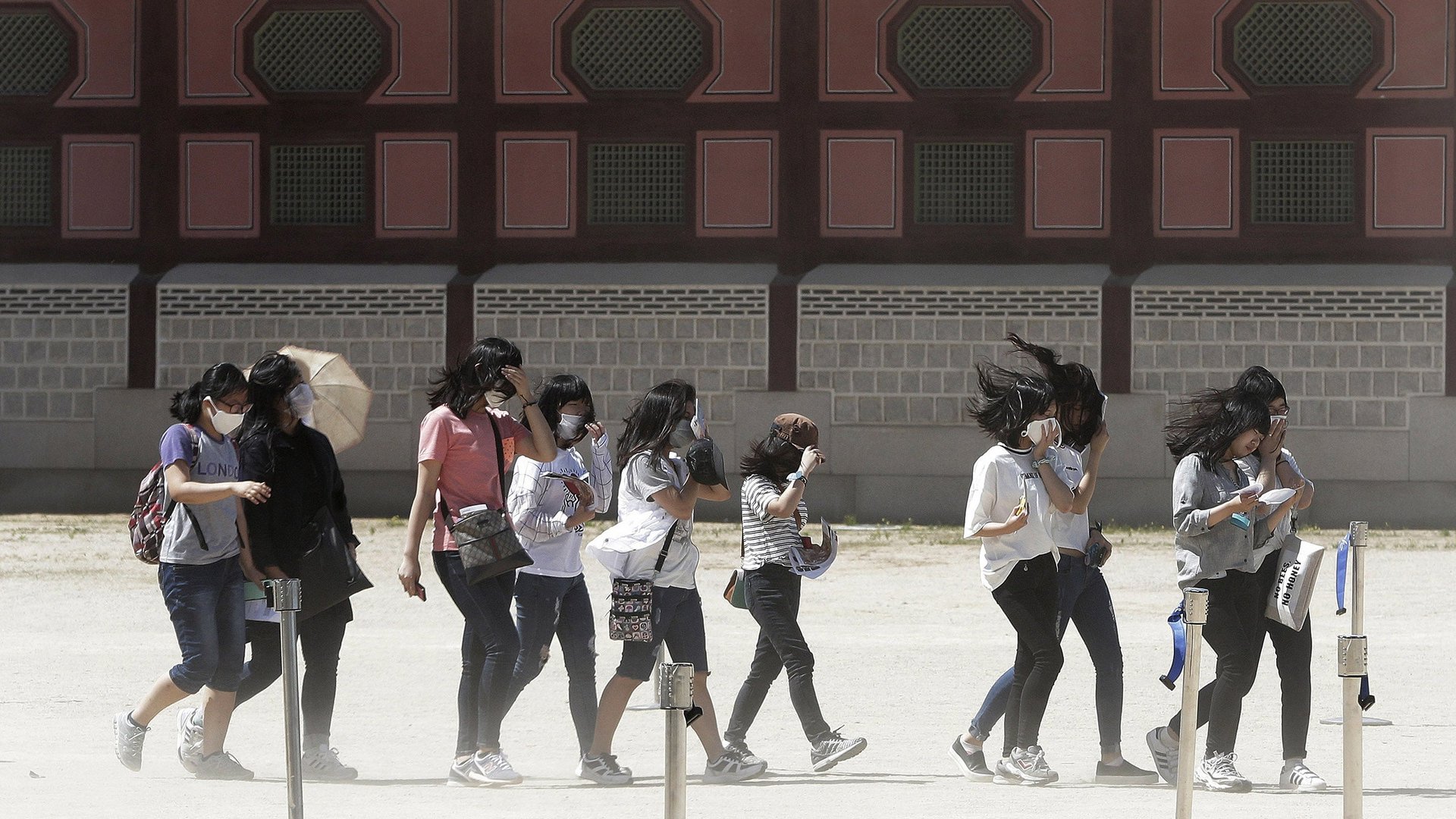Schools are being shut down as a MERS outbreak raises an alarm in South Korea
More than 1,000 schools have been shut in South Korea as the country struggles to contain a virus outbreak. Earlier today (June 4) it confirmed that a third patient had died because of the Middle East Respiratory Syndrome (MERS). The total number of confirmed cases now stands at 36, and the World Health Organization (WHO) expects more cases.


More than 1,000 schools have been shut in South Korea as the country struggles to contain a virus outbreak. Earlier today (June 4) it confirmed that a third patient had died because of the Middle East Respiratory Syndrome (MERS). The total number of confirmed cases now stands at 36, and the World Health Organization (WHO) expects more cases.
MERS was first detected in 2012 in Saudi Arabia, and likely transferred to humans from camels. We still don’t understand well how the virus spreads, but close contact with an infected individual seems necessary. The MERS virus is similar to the virus that causes severe acute respiratory syndrome (SARS), an outbreak of which killed more than 700 people in 2003 and infected 8,000 people in 32 countries. Although MERS is deadlier, it hasn’t spread as quickly as SARS had.
For South Koreans, the government’s ability to handle emergencies is a cause of further concern. “A lot of fear we see now is rooted in the distrust of the government and what it says,” Yu Min-yeong, head of crisis management consulting firm Acase, told the New York Times.
WHO insists that despite the growing number of cases, simple precautions to prevent infection should help contain the outbreak. It does not advocate any travel or trade restrictions yet. Nonetheless, as many as 7,000 people from China, Hong Kong, and Taiwan had canceled trips to South Korea as of June 2, according to the Korea Tourism Organization.
The “index” patient who introduced the disease to South Korea has been identified as a 68-year-old who returned home on May 4 after traveling to Qatar, Bahrain, the United Arab Emirates, and Saudi Arabia. His fever developed soon after, but he wasn’t tested for the virus until May 18, by which time the disease had started spreading.
Authorities were criticized for their slow response. At a news conference on June 2, Moon Hyung-pyo, South Korean minister for health and welfare, said, “We apologize for the inappropriate initial responses. We were too relaxed.”